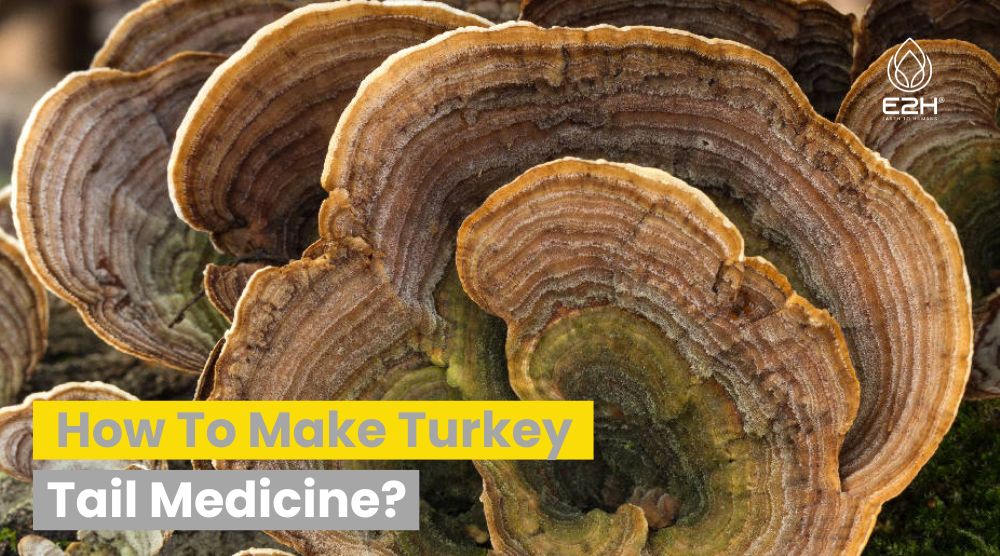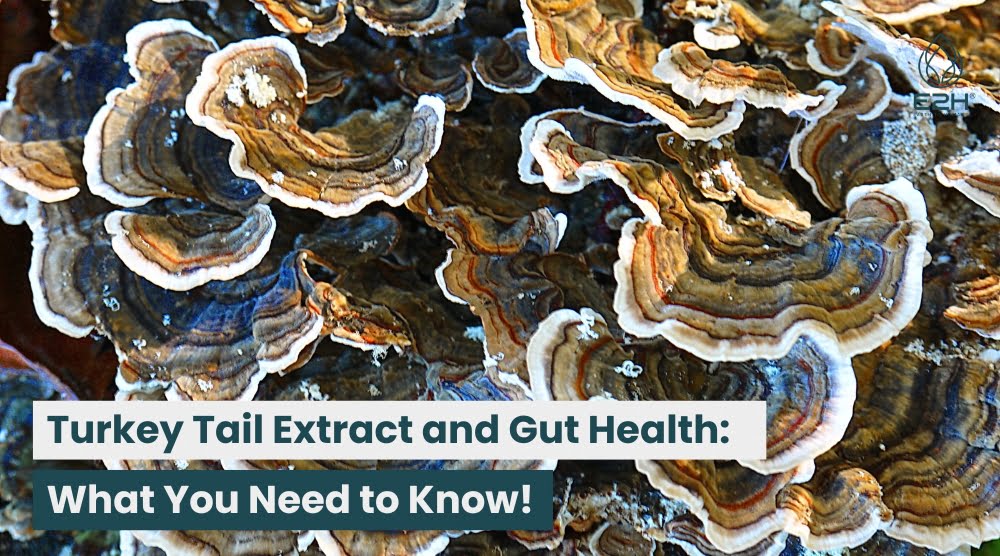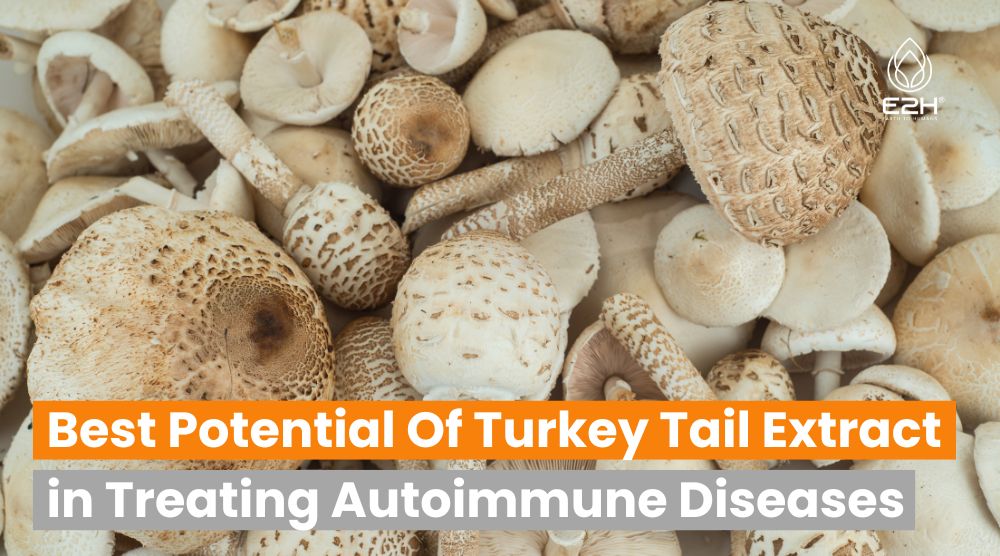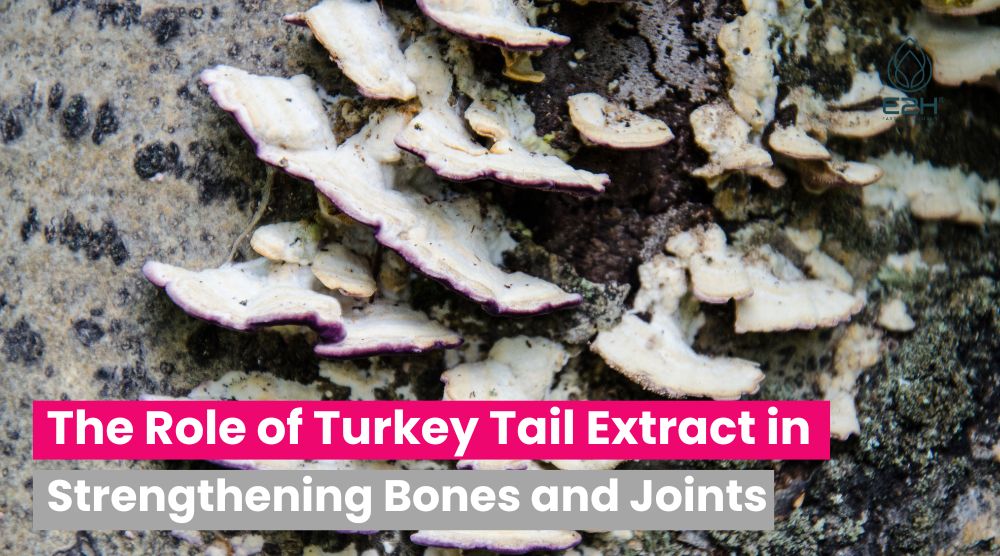Can I Take Turkey Tail Mushroom On An Empty Stomach: Yes, you can take turkey tail mushroom on an empty stomach. There are no specific restrictions regarding taking turkey tail mushroom grows take it with or without food.
What is Turkey Tail Mushroom?
Turkey tail mushroom is a medicinal fungus that grows abundantly in forests around the world. It is characterized by its vibrant colors, resembling the patterns found on a turkey’s tail feathers. This mushroom is scientifically classified as Trametes versicolor and is known for its concentric rings of contrasting shades, ranging from brown and white to blue and green.

Nutritional Composition of Turkey Tail Mushroom
Turkey tail mushroom is rich in nutrients that contribute to its potential health benefits. It contains a variety of vitamins, minerals, and antioxidants. Additionally, turkey tail mushroom is particularly known for its high content of polysaccharides and beta-glucans, nutrients which are bioactive compounds that may support immune function and overall wellness.
Health Benefits of Turkey Tail Mushroom
The consumption of turkey tail mushroom has been associated with numerous health benefits. One of its notable properties is its ability to boost the immune system. The polysaccharides and beta-glucans found in turkey tail mushroom have been studied for their immunomodulatory effects, potentially enhancing the body’s defense against infections, cancers and diseases.
Furthermore, turkey tail mushroom exhibits strong anti-inflammatory properties. Chronic inflammation is linked to various health issues, and the bioactive compounds in turkey tail mushroom may help reduce inflammation in the body. This, in turn, can support overall well-being and potentially alleviate symptoms related to inflammatory conditions.
Moreover, research suggests that turkey tail mushroom may contribute to gut health. The bioactive compounds in this mushroom could promote the growth of beneficial gut bacteria, aiding digestion and supporting a healthy microbiome.
Additionally, some studies have explored the potential role of turkey tail mushroom as an adjunct therapy to chemotherapy for cancer treatment. While it is not a standalone cure for cancer, it shows promise as a complementary therapy to chemotherapy due to its potential immunomodulatory and antioxidant effects. However, it is crucial to consult with a healthcare professional before incorporating turkey tail mushroom into a cancer treatment plan.
Recommended Dosage of Turkey Tail Mushroom
Determining the optimal dosage of turkey tail mushroom is essential to ensure safe and effective consumption. The recommended dosage can vary depending on various factors, including an individual’s age, overall health, and specific health conditions.
As a general guideline, experts suggest taking between 1 to 3 grams of turkey tail mushroom extract per day. However, it is crucial to consult with a healthcare professional before starting turkey tail mushroom or any new supplement regimen. They can provide personalized recommendations based on your body weight and unique circumstances and help you determine the appropriate dosage for your body weight and needs.
Scientific Research on Turkey Tail Mushroom
Numerous scientific studies and clinical trials have explored the potential health benefits of turkey tail mushroom. These studies have focused on understanding its immunomodulatory effects, anti-inflammatory properties, and potential as a complementary therapy for cancer treatment.
Research indicates that the bioactive compounds in turkey tail mushroom, such as polysaccharides and beta-glucans, can enhance immune response by activating immune cells and promoting the production of beneficial cytokines. Additionally, its anti-inflammatory properties have been demonstrated in both in vitro and in vivo studies.
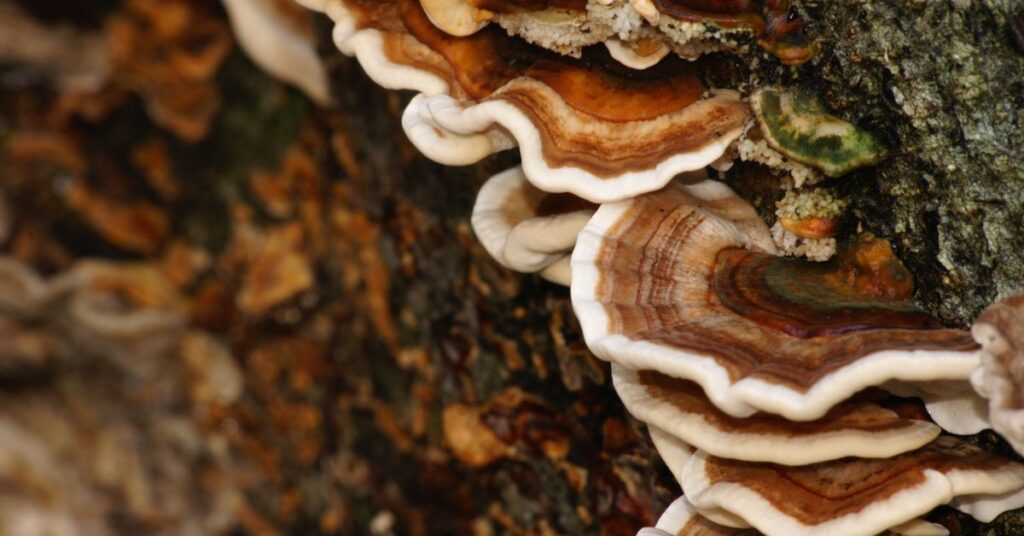
It is important to note that while turkey tail mushroom shows promise as a natural remedy fighting cancer, more research is needed to fully understand medicinal mushrooms, its mechanisms of action and validate its benefits. It is always advisable to consult with healthcare professionals or researchers who specialize in mycology for the most complete guide up-to-date information.
How to Incorporate Turkey Tail Mushroom Into Your Routine?
Turkey tail mushroom is available in various forms, including powder, capsules, and teas. This versatility allows you to incorporate turkey tail mushroom into your routine based on personal preferences and convenience.
You can add turkey tail mushroom powder to your smoothies, soups, or other recipes. Alternatively, capsules provide a convenient way to consume the mushroom extract, especially for those who may not enjoy the taste of mushrooms. Turkey tail extract and mushroom teas are another popular option, offering a soothing and flavorful way to enjoy the potential benefits of this medicinal mushroom.
When selecting turkey tail mushroom products, it is crucial to choose high-quality options from reputable sources. Look for products that have been tested for purity, potency, and safety. Organic and certified products are generally recommended to ensure the highest standards of quality.
Safety Considerations
While turkey tail mushroom is generally considered safe for consumption, it is essential to be aware of potential allergies or adverse reactions. Some individuals may have allergies to mushrooms, and it is advisable to discontinue use if any allergic symptoms, such respiratory conditions such as rash or difficulty breathing, occur.
Additionally, turkey liver and turkey tail mushroom capsules may interact with certain medications, such as immunosuppressants or anticoagulants. If you are taking any medications, it is crucial to consult with your healthcare provider before adding turkey tail mushroom to your routine to ensure there are no potential interactions.
What are the side effects of taking turkey tail mushroom extract?
Taking turkey tail mushroom extract is generally safe for most individuals. However, some people may experience mild gastrointestinal symptoms such as bloating, gas, or an upset stomach. Additionally, individuals with turkey tail mushroom capsules or allergies may have an adverse reaction to turkey tail mushroom extract.
It is important to discontinue use if any allergic symptoms, such as rash or difficulty breathing, occur. Furthermore, individuals taking immunosuppressant medications or anticoagulants should exercise caution and consult with a healthcare professional before taking turkey tail mushroom extract to ensure there are no potential interactions. As always, it is recommended to consult with a healthcare provider before starting any new supplement regimen.
How do turkey tail mushrooms inhibit the spread of cancerous cells?
Turkey tail mushrooms have been studied for their potential to inhibit the spread of cancerous cells through various mechanisms. One key mechanism is their ability to modulate the immune system. The bioactive compounds, such as polysaccharopeptides and polysaccharides, in turkey tail mushrooms can stimulate the activity of the body’s natural defense against killer cells, T-cells, and macrophages. These immune cells play a crucial role in identifying and eliminating cancer cells.

Additionally, turkey tail mushrooms contain antioxidants that help reduce oxidative stress and inflammation, which are often associated with cancer development and progression. The combination of immune modulation and antioxidant properties of mushrooms and turkey feathers thus may contribute to the inhibition of breast cancer cell spread. However, further research is needed to fully understand the specific mechanisms involved.
Should you take mushroom supplements on an empty stomach?
There is no specific requirement to take mushroom supplements on an empty stomach. However, some individuals may find that taking turkey tail mushroom with food helps prevent any potential digestive discomfort. It is generally recommended to follow the instructions provided on the supplement packaging or consult with a healthcare professional for personalized guidance.
What time of day is best to take mushroom supplements?
The best time to take mushroom supplements depends on their specific benefits and your individual routine. Some mushrooms, such as Lion’s Mane or Cordyceps, are known for their energizing properties and may be more suitable for morning or daytime consumption. Others, like Reishi or Turkey Tail, are often taken in the evening due to their calming or even immune system-supporting effects. However, it is advisable to follow the instructions on the supplement packaging or consult with a healthcare professional for personalized recommendations.
Is turkey tail mushroom good for the stomach?
Turkey tail mushroom has been traditionally used for its potential benefits to the digestive system. It contains bioactive compounds, such as polysaccharides and beta-glucans, which may help support gut health and digestion. These compounds can promote the growth of beneficial gut bacteria, aid in nutrient absorption, and potentially alleviate certain digestive issues. However, it is important to note that individual responses may vary, and consulting with a healthcare professional is recommended for personalized advice.
What should you not take with turkey tail?
While turkey tail mushroom is generally safe for consumption, there are a few considerations regarding potential interactions or contraindications. It is advisable to avoid taking turkey tail mushrooms, mushroom supplements or any new mushroom supplement without consulting with a healthcare professional if you are taking immunosuppressant medications or anticoagulants. There is a potential for interactions with these medications, and professional guidance is crucial to ensure your safety. Additionally, individuals with known mushroom allergies should avoid turkey tail mushroom or any other mushroom supplements to prevent allergic reactions.
How To Use Turkey Tail Mushrooms?
FAQs
Can turkey tail mushroom cure breast and lung cancer???
Turkey tail mushroom is not a standalone cure for all breast cancer patients however. However, it shows promise as a complementary therapy for cancer patients due to its potential immunomodulatory and antioxidant effects. It is crucial to consult with healthcare professionals to determine the best approach for your specific condition.
Is it safe to consume turkey tail mushroom during pregnancy?
Pregnant women should exercise caution when considering the consumption of turkey tail mushroom or any new supplements. It is advisable to consult with a healthcare professional before incorporating it into your routine to ensure the safety and well-being of both the mother and the baby.
How long does it take to experience the benefits of turkey tail mushroom?
The time it takes to experience the benefits of turkey tail mushroom can vary from person to person. Consistent consumption over an extended period is generally recommended to allow the bioactive compounds to accumulate and have a potential positive impact on the body.
Can I take turkey tail mushroom if I have an autoimmune condition?
Individuals with autoimmune conditions should exercise caution when considering the use of turkey tail mushroom or any new supplements. The potential effects on the immune system could interact with patients with autoimmune conditions. Consulting with a healthcare professional is essential to determine the suitability, effectiveness and safety of incorporating turkey tail mushroom into your routine.
Are there any drug interactions with turkey tail mushroom?
Turkey tail mushroom may interact with certain medications, such as immunosuppressants or anticoagulants. It is crucial to consult with your healthcare provider before adding turkey tail mushroom to your routine diet if you are taking any medications to avoid potential interactions.
Conclusion
Turkey tail mushroom is a fascinating medicinal mushroom that has gained attention for its potential health benefits. From immune-boosting properties to its role in promoting gut and liver health and potential as a complementary cancer therapy, there is much to explore. When incorporating turkey tail mushroom into your routine, it is essential to consult with healthcare professionals, consider the recommended dosage, and choose high-quality products.
By embracing the potential of turkey tail mushroom and adopting a holistic approach to wellness, you can enhance your overall health and well-being.



